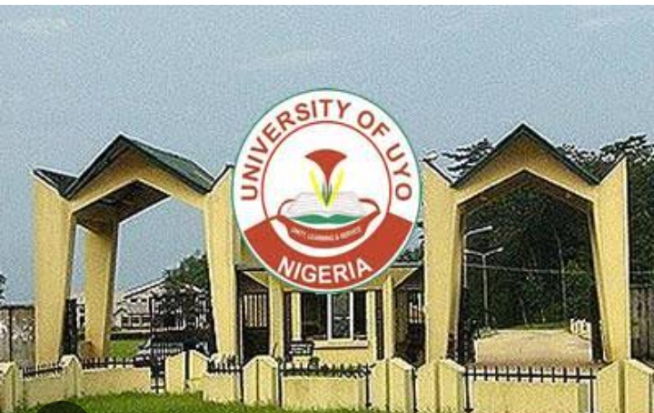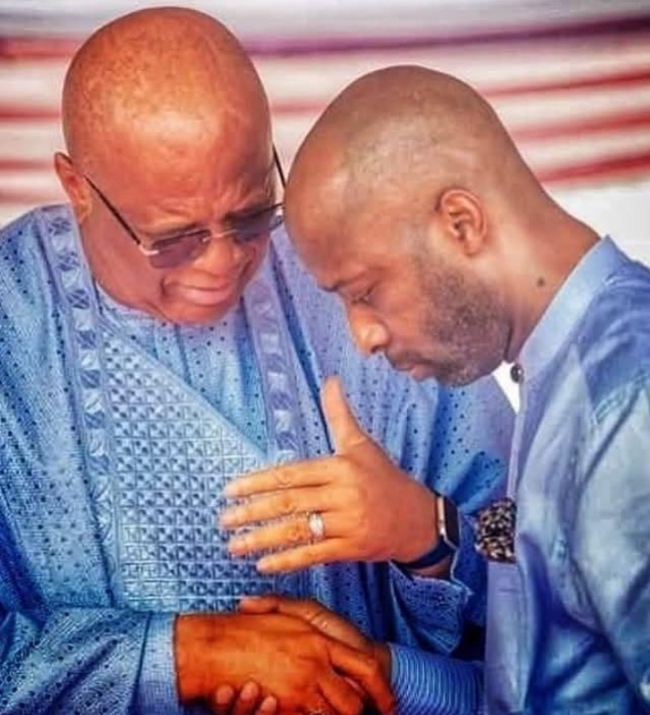Uyo, Nigeria – June 8, 2025
In a move that signals a high-stakes intervention in the leadership crisis rocking the University of Uyo (UNIUYO), President Bola Ahmed Tinubu has approved the appointment of Dr. Muiz Banire (SAN) as the new Chairman of the Governing Council of the institution. This decision comes after the sudden withdrawal of Senator Ike Nwachukwu, who declined the position shortly after his initial appointment, citing undisclosed personal reasons.
However, the controversy surrounding UNIUYO’s succession plan for the office of the Vice Chancellor has deepened, with growing allegations that the outgoing Vice Chancellor, Prof. Nyaudoh Ndaeyo, has been engineering a clandestine plot to impose a successor loyal to him—threatening the integrity of the university’s leadership process.
According to sources within the institution, following Senator Nwachukwu’s withdrawal, Prof. Ndaeyo reportedly maneuvered to position a female council member as Acting Chairman in defiance of established protocols. Critics within the university community allege that this move was calculated to enable Prof. Ndaeyo consolidate control over the council’s decision-making process in the crucial transitional period, particularly as the university prepares to appoint its next Vice Chancellor.
What has triggered wider alarm is the advertisement for the Vice Chancellor position, which, according to several internal and external stakeholders, contains skewed eligibility criteria. Several senior academics and administrative staff have accused the outgoing VC and his allies of doctoring the qualifications and requirements to disqualify otherwise credible contenders while clearing the path for a preferred candidate who is believed to be a protégé of Prof. Ndaeyo.
“This is not just an abuse of process; it is an affront to the ideals of transparency and meritocracy,” said a senior professor who spoke on condition of anonymity. “What we are seeing is an orchestrated effort to plant a stooge in the office of Vice Chancellor—someone who will cover tracks and shield the current administration from accountability.”
There are also growing concerns over a culture of impunity at the university, with several academic unions expressing dissatisfaction with what they describe as “executive overreach” and the shrinking space for dissent within the system. The Academic Staff Union of Universities (ASUU), University of Uyo Chapter, is reportedly weighing its options, and a formal petition is expected to be submitted to the National Universities Commission (NUC) in the coming days.
A group of concerned alumni has also issued a statement, calling for “a full-scale independent investigation into the succession process, the role of the outgoing Vice Chancellor, and the legality of the actions of the acting council leadership.”
The appointment of Dr. Banire, a senior advocate and constitutional lawyer, is seen as a critical step by the Federal Government to restore order and credibility to the governing processes at UNIUYO. Whether he will be able to navigate the deep-seated tensions and vested interests remains to be seen.
For now, the university community remains on edge, with mounting calls for the intervention of education stakeholders, civil society, and even anti-corruption agencies to ensure that the selection of the next Vice Chancellor is transparent, merit-based, and free from internal manipulation.
As the tenure of Prof. Ndaeyo winds down, the eyes of the academic world—and the nation—are firmly fixed on UNIUYO. Will the institution rise above petty politics, or will it become yet another cautionary tale in the troubled history of Nigerian tertiary education?



